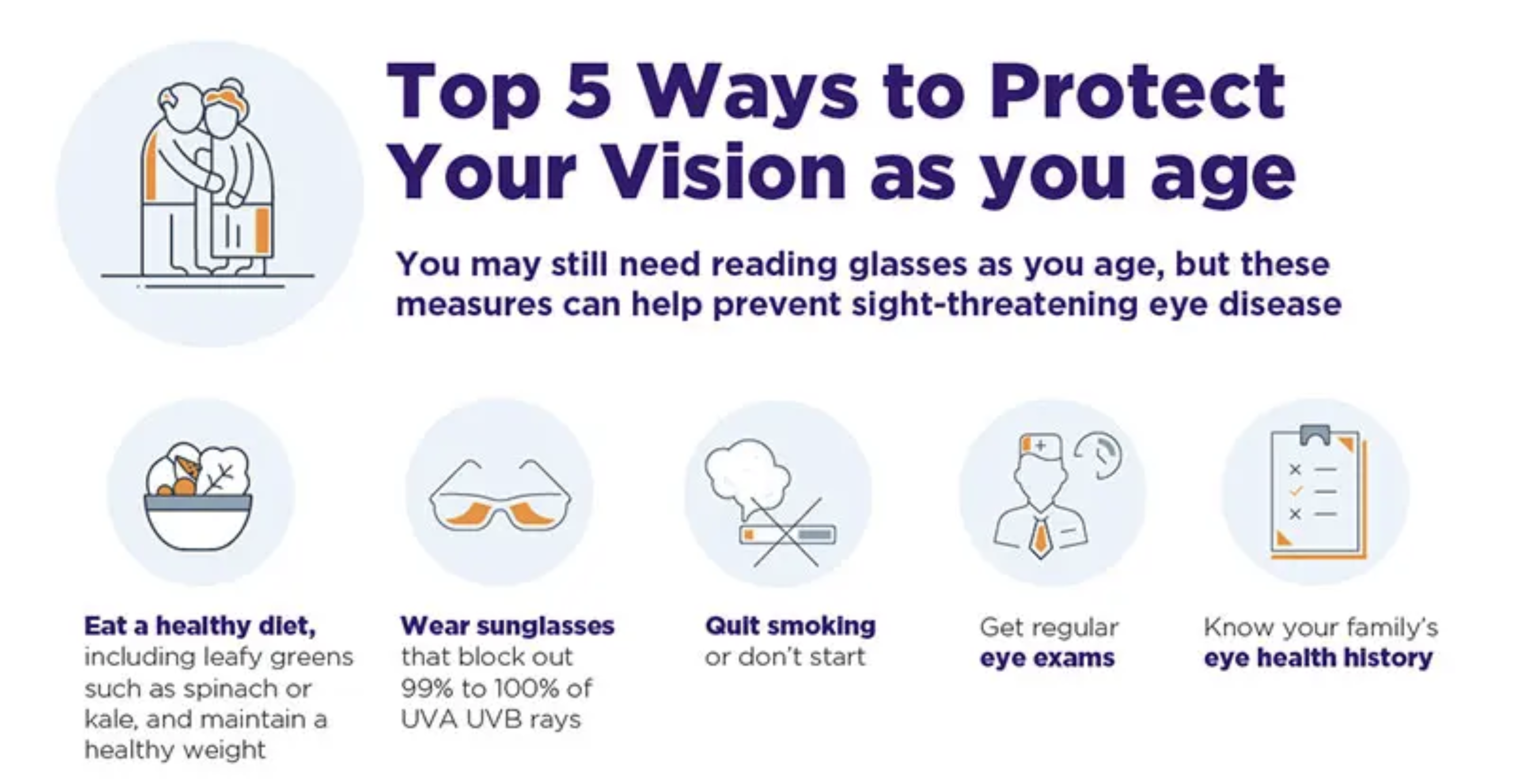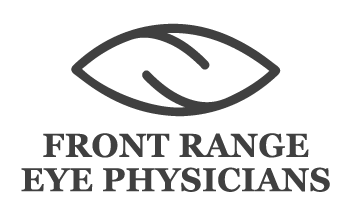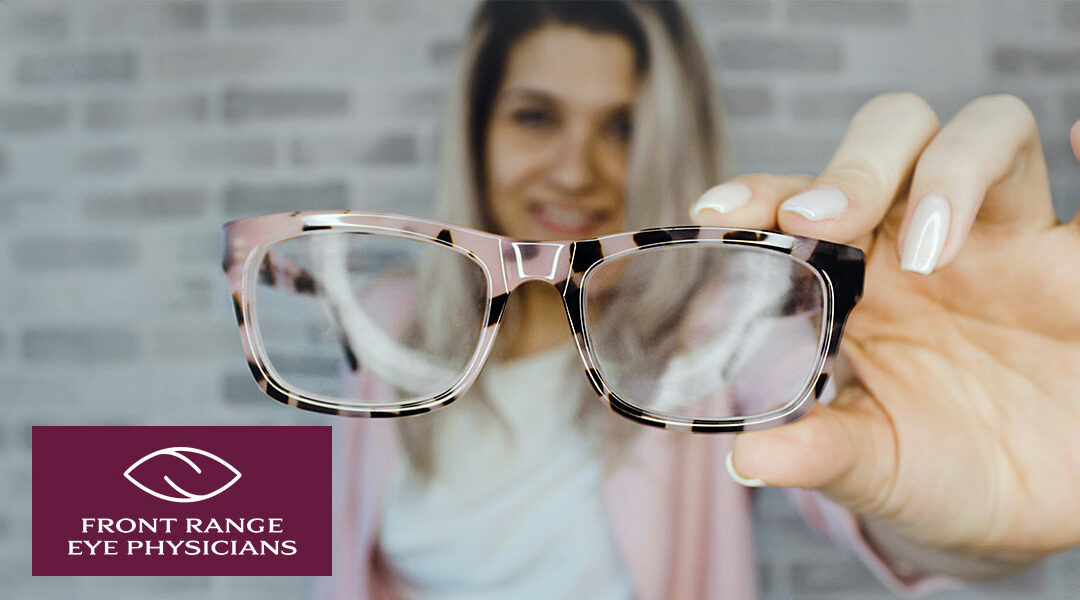If you’re like most Americans surveyed in a recent Harris Poll, you probably thought you would notice a change in your vision if you had an eye disease. The fact is some of the leading causes of blindness—such as glaucoma or diabetic retinopathy—can begin without any symptoms. That’s why we urge all healthy adults to get an eye exam at age 40, even if their vision seems fine. Early signs of disease and changes in vision may start to happen at this age.
Need more motivation to have your eyes examined? Here are three good reasons to see an ophthalmologist:
- Your brain adapts to vision loss, making some eye diseases go unnoticed until it is too late. Once vision is lost, it cannot be restored. Ophthalmologists can spot eye disease before vision is compromised and protect your sight.
- Seeing an ophthalmologist can improve not just your eye health, but your overall health. Because the blood vessels and nerves in your eye are reflective of the rest of your body, ophthalmologists are sometimes the first to diagnose diseases such as diabetes, multiple sclerosis, or vitamin deficiencies.
- Your eye health is dependent on different factors, including family history, ethnicity, age, and overall health. An ophthalmologist can help evaluate your personal risk factors and recommend the best steps for disease prevention.
For more tips and information, visit www.eyesmart.org.


